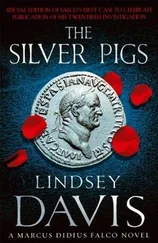Lindsey Davis - The course of Honor
Здесь есть возможность читать онлайн «Lindsey Davis - The course of Honor» весь текст электронной книги совершенно бесплатно (целиком полную версию без сокращений). В некоторых случаях можно слушать аудио, скачать через торрент в формате fb2 и присутствует краткое содержание. Жанр: История, на английском языке. Описание произведения, (предисловие) а так же отзывы посетителей доступны на портале библиотеки ЛибКат.
- Название:The course of Honor
- Автор:
- Жанр:
- Год:неизвестен
- ISBN:нет данных
- Рейтинг книги:5 / 5. Голосов: 1
-
Избранное:Добавить в избранное
- Отзывы:
-
Ваша оценка:
- 100
- 1
- 2
- 3
- 4
- 5
The course of Honor: краткое содержание, описание и аннотация
Предлагаем к чтению аннотацию, описание, краткое содержание или предисловие (зависит от того, что написал сам автор книги «The course of Honor»). Если вы не нашли необходимую информацию о книге — напишите в комментариях, мы постараемся отыскать её.
The course of Honor — читать онлайн бесплатно полную книгу (весь текст) целиком
Ниже представлен текст книги, разбитый по страницам. Система сохранения места последней прочитанной страницы, позволяет с удобством читать онлайн бесплатно книгу «The course of Honor», без необходимости каждый раз заново искать на чём Вы остановились. Поставьте закладку, и сможете в любой момент перейти на страницу, на которой закончили чтение.
Интервал:
Закладка:
She did not, of course, pay rent. She occupied a prestigious mansion, which she looked after for an octogenarian ex-consul who never visited Rome. The consul paid all the bills, and when he died he left Veronica the house. Meanwhile her success was assured. She let it be known that no one need apply who commanded less than a hundred million sesterces; rather than be thought too poor to attend her salon, clients flocked in.
Veronica repeatedly asked Caenis to live with her. Caenis always refused. She did, however, go there sometimes in the evening. She liked Veronica's house for the same reasons as the elderly gentlemen of conservative opinions who treated it like a military dining club: The place was warm, the cooks were excellent, the women were civilized, and the sanitation worked.
Caenis came to be regarded as a kind of inky-fingered duenna. Her connections were respectable, and when she felt like it (not invariably) she made people laugh. She never slept with men, though for three years Veronica tenaciously shoveled men her way. If necessary, Caenis slid them off elsewhere. It was not always necessary. Many were grateful that she made no demands. Some men who patronize exclusive salons are frightened they cannot live up to expectations (Veronica agreed tartly that most could not). For them, talking to Caenis was polite and safe.
Caenis herself did not altogether appreciate the arrangement. The men Veronica thought suitable for her all fell into a certain type: recent widowers with far too much to say now about their previously neglected wives, or bachelors so trying that their loneliness was all too understandable. The other thing they had in common, Caenis soon noticed, was that none of them was a man whom Veronica wanted to have to entertain herself. Being a convenience sometimes rankled.
She put up with the situation. Caenis never lost her sense of humor entirely.
Sometimes there was political talk. Veronica discouraged this. Treason could lead to trouble, and if things became too heated men lost their tempers and stormed off without wanting a girl, which reduced her income. Caenis, who only went there for something to eat and companionship, rather enjoyed the politics.
On one occasion she thought Veronica would have a seizure; someone openly raised the question of disposing of the Emperor.
Caenis noted that there was not the shocked silence that anyone who lived outside Rome would expect. By now Caligula had worn the purple for four years; he had also dressed up in silken robes encrusted with gemstones, theatrical costumes, elaborate military uniforms (usually with the breastplate of Alexander, which he claimed he had stolen from the hero's tomb), and rather ordinary women's dresses in colors that did not suit his pasty face. His behavior had been odd, baffling, and exorbitantly expensive. While staying at Antonia's villa at Bauli, he dreamed up a plan to defy the old prophecy that he could as soon become Emperor as ride dry-shod over the sea at Baiae: He built a three-mile bridge of galleys, turfed it over, and for two days trundled in a chariot to and fro across the Gulf; several people cheering his entourage were knocked into the sea and drowned. He had bankrupted the Treasury with his constant Games and circuses; he brought business to a standstill and even canceled the rites of mourning so no one had an excuse not to attend his shows. His cruelties extended from the execution of his own cousin King Ptolemy of Mauretania (who had offended him at a gladiatorial display by winning the crowd's applause for an elegant purple cloak), to dispatching common criminals in batches, without even a glance at the charge sheet, in order to feed their carcasses to his panthers and lions. He blighted trade with fierce taxation. He chained up the granaries when the populace was starving. No one forgot how he had worried his grandmother to death.
People were now looking back fondly to the golden age of Augustus, a man who in retrospect had genuinely seemed to want to do right. People remembered that even under Tiberius the city and the provinces were efficiently run. After four years there was a slow groundswell of understanding in Rome that Caligula must be removed. He was still not yet thirty. People felt tired just thinking how long they might have to endure him if nothing was done. Needless to say, most people hoped somebody else would volunteer to risk doing it.
There had been one plot, apparently brewed by his sister Agrippina. Drusilla, to whom he was most deeply attached, had died suddenly; her death caused a florid outburst of grief in the Emperor, who proclaimed Drusilla a goddess, established a cult for her, ordered public mourning on a scale that was disaster for small traders, and then fled to the country to soak himself in misery (mitigated by occasional gambling bouts).
Afterward the position of the surviving sisters, Agrippina and Livilla, had declined. While accompanying their brother on a visit to Germany they found themselves accused—probably rightly—of plotting with Lepidus, Drusilla's widower. He was executed and they were exiled, but first Agrippina was compelled to bring the cremated remains of Lepidus, who was allegedly her lover, back to Rome in a casket—a grim parody of her mother returning from Syria with the relics of the dead hero Germanicus. The Senate had had to frame its reaction cautiously, and since the plot had been put down, there was only one tactful course: One of the praetors issued congratulations to the Emperor on his expedition, then denounced Lepidus and suggested that his ashes should be denied the family mausoleum and cast out unburied.
The praetor concerned was Flavius Vespasianus.
* * *
When plotting came up in conversation it was Caenis herself who said quietly, "There will always be the convention that the Senate creates the Emperor—then cannot be seen doing away with him."
There were senators in the room. Mostly they followed the pattern of slow, somber, self-opinionated men in late middle age. Now, after feeding on swan cunningly presented as porpoise, turbot in aspic, and suckling pig served with two wine sauces reduced to a delicate glaze, they were lying on their couches holding back belches while pontificating bitterly on the world's decline. They thought this was daring enough.
Caenis felt disinclined to let them get away with it. "It will be," she suggested, "some disgusted individual who dares to plunge in the knife." Veronica closed her eyes, gleaming silver with mercury. Caenis refused to take the hint. "Then the Senate, to excuse its own cowardice, will execute that individual for his courage."
She fell silent, having noticed with more interest than usual that her leg was touching the leg of the man to her left. It had been an accident, but she ignored what had happened, and so did he. He was Lucius Anicius, a knight who had made a fortune in charioteers; not her type at all. He spent a lot of time with the Praetorian Guards and was, Caenis realized afterward, probably the one person present who was fully aware of the burning hatred felt for Caligula by their current commander, Cassius Chaerea. Caligula was always giving obscene watchwords to Chaerea, a decent, proper man who had to pass them on straightfaced to the rest of the Guard.
Anicius said, seeming to take her part, "The question seems to be, not whether a plot will succeed—but which one it will be." Agreeing, people laughed and listed some of them: Aemilius Regulus, an unknown from Spain; a senator called Vinicianus who had been friendly with the dead Lepidus; Chaerea, the much-humiliated commander of the Praetorian Guard; members of the Emperor's own household, particularly his freedman Callistus. . . . Those were the acknowledged plotters. Any moment someone here would be revealing the secret ones.
Caenis saw Veronica signal to her waitresses to bring in towering platters of fruit. In a crisis she always ordered the dessert. Peeling it kept troublemakers quiet.
Читать дальшеИнтервал:
Закладка:
Похожие книги на «The course of Honor»
Представляем Вашему вниманию похожие книги на «The course of Honor» списком для выбора. Мы отобрали схожую по названию и смыслу литературу в надежде предоставить читателям больше вариантов отыскать новые, интересные, ещё непрочитанные произведения.
Обсуждение, отзывы о книге «The course of Honor» и просто собственные мнения читателей. Оставьте ваши комментарии, напишите, что Вы думаете о произведении, его смысле или главных героях. Укажите что конкретно понравилось, а что нет, и почему Вы так считаете.












